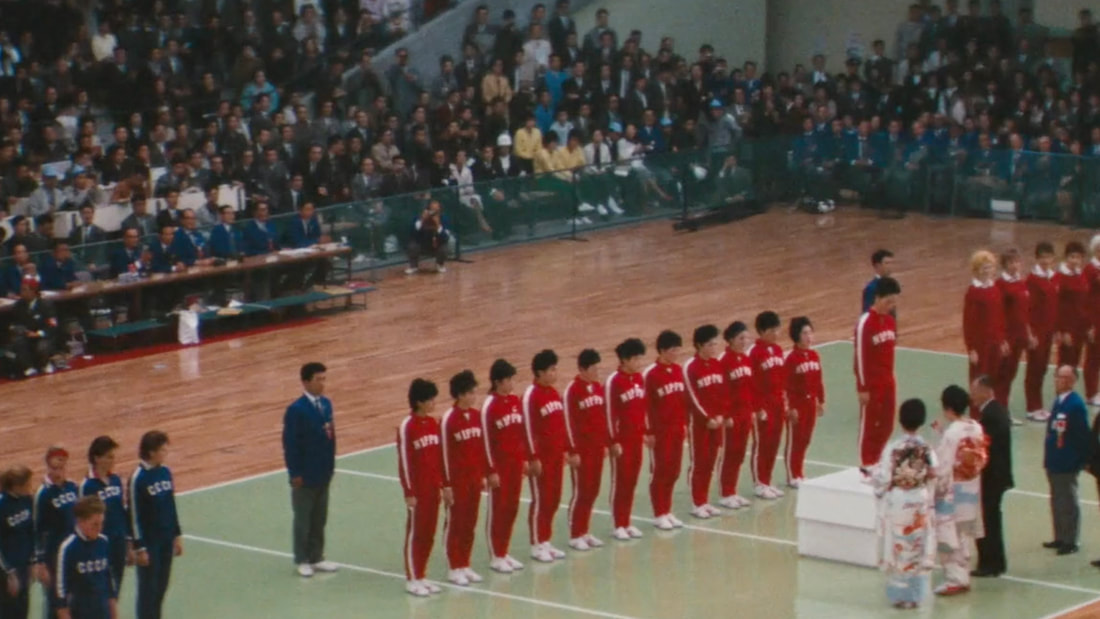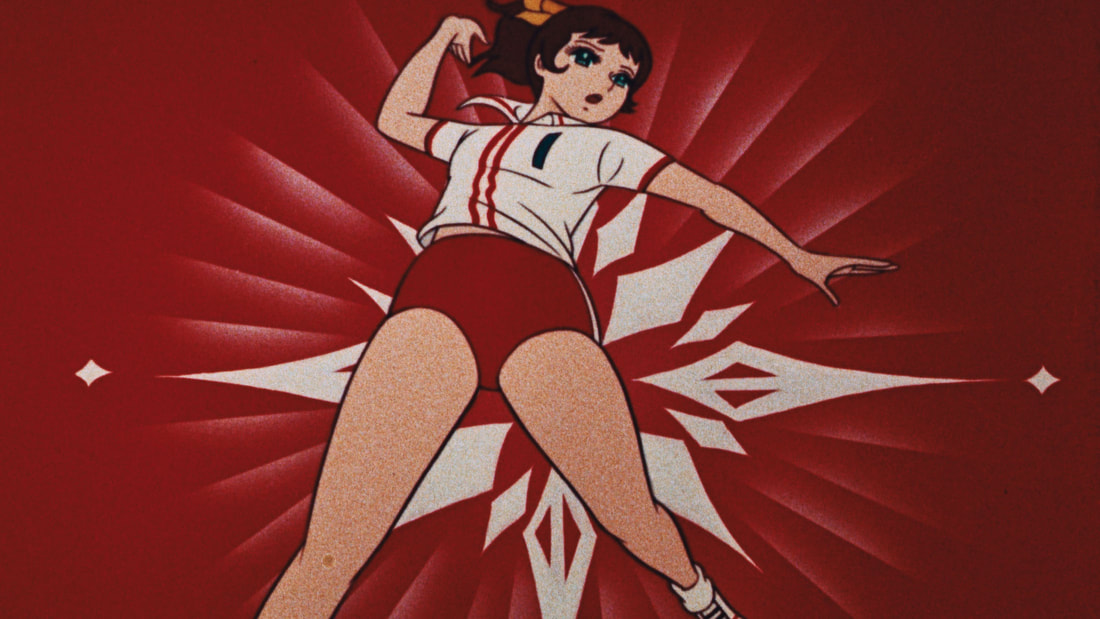|
Review by Sean Boelman
Right as preparations are underway for the Summer Olympics (albeit delayed by a year due to the COVID-19 pandemic), sports documentarian Julien Faraut has brought us a reminder of an important moment in Olympic history. Unorthodox and exciting, The Witches of the Orient is definitely one of the most interesting sports films in recent memory.
The movie tells the story of the 1964 Japanese Olympic volleyball team, who would go on to become the first gold medal winners in the history of the sport’s inclusion in the Games. Faraut treats this like the massively groundbreaking achievement that it is, focusing on how they got to the win rather than the simple fact that they did win, knowing the audience would rather not watch another underdog story for which the outcome is already written in the books of time. Perhaps the most interesting thing about Faraut’s style is how he is able to make the film so detailed and technical while still keeping it riveting at the same time. Most viewers probably won’t have too much of an interest in this level of specificity on how an Olympic volleyball game works, but Faraut’s approach keeps things exciting. However, Faraut does not fall back on a typical talking head/archive footage approach to tell this story, but rather something much more creative. Animated sequences in the style of action anime take the place of what would normally be the portions of the movie following the team training and practicing, and the result is something that is much more compelling than usual.
By the time the actual Olympic Games hit, the audience will be so hyped up from these energetic sequences that the actual footage of them playing has an impact even though we know what the results will be. The fact that Faraut was able to make sporting events from over half a decade ago feel thrilling is certainly impressive.
Faraut also has a fixation with spectation and sports, as can be seen in both this and his previous documentary (which was about John McEnroe). The film explores the relationship between the athlete, the camera, and the spectator, and the result is generally thought-provoking, even if the message can get lost in how busy the movie is. The thing that Faraut doesn’t succeed as much in is in connecting the audience with these subjects. In exploring the almost mythical status given to them, Faraut also nearly apotheosizes them, and because of this, a lot of the emotional beats in relation to their success just don’t land. The Witches of the Orient is a can’t-miss sports documentary, if only because of filmmaker Julien Faraut’s unique method of storytelling. It isn’t perfect, but Faraut has made an extremely memorable film in a characteristically overstuffed genre. The Witches of the Orient is now in theaters and hits virtual cinemas on July 16. Rating: 4.5/5
0 Comments
Leave a Reply. |
Archives
July 2024
Authors
All
|
|
|
disappointment media
Dedicated to unique and diverse perspectives on cinema! |


